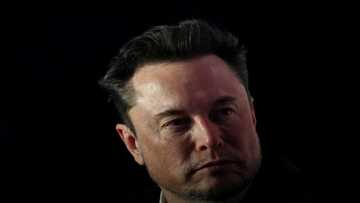TikTok suspends rewards programme after EU probe

Source: AFP
TikTok on Wednesday announced the suspension of a feature in its spinoff TikTok Lite app in France and Spain that rewards users for watching and liking videos, after the European Union launched a probe.
The popular video-sharing social media platform, owned by Chinese company ByteDance, said the suspension would remain "while we address the concerns that they have raised".
The European Commission's top tech enforcer, Thierry Breton, said the EU investigation would continue, stating: "Our children are not guinea pigs for social media."
TikTok Lite arrived in France and Spain -- the only EU countries where it is available -- in March. Users aged 18 and over can earn points to exchange for goods like vouchers or gift cards through the app's rewards programme.
TikTok Lite is a smaller version of the popular TikTok app, taking up less memory in a smartphone and made to perform over slower internet connections.
The European Commission on Monday announced an investigation into TikTok Lite, and threatened to have the rewards programme suspended, raising concerns about the risk to users' mental health.
PAY ATTENTION: Click “See First” under the “Following” tab to see YEN.com.gh News on your News Feed!
The commission demanded TikTok provide more information by a Wednesday deadline, along with any defence against the threatened suspension.
Breton said in a statement that "our cases against TikTok on the risk of addictiveness of the platform continue".
"We suspect that this (rewards) feature could generate addiction and that TikTok did not do a diligent risk assessment and take effective mitigation measures prior to its launch," he said.
The probe is the EU's second against TikTok under a sweeping new law, the Digital Services Act (DSA), that requires digital firms operating in the 27 nations to effectively police online content.
In February, the commission opened a formal probe into TikTok over alleged violations of its obligations to protect minors online.
TikTok squeezed
TikTok is also under pressure across the Atlantic.
A bill to ban TikTok cleared the US Congress after the Senate on Tuesday approved legislation requiring TikTok to be divested from ByteDance.
TikTok's CEO, Shou Zi Chew, said the company would fight the law -- which he said amounted to a ban -- in US courts.
The European Commission has refused to comment on the United States' move. Instead it has focused on the EU's legal arsenal to bring big tech into line with its rules.
The move against the TikTok Lite rewards scheme was the latest instance of the EU flexing that legal muscle against online platforms.
It is also investigating tech billionaire Elon Musk's X, the former Twitter, over alleged illegal content.
TikTok Lite users can win rewards if they log in daily for 10 days, if they spend time watching videos (with an upper limit of 60 to 85 minutes per day), and if they undertake certain actions, such as liking videos and following content creators.
TikTok is among 22 "very large" digital platforms, including Amazon, Facebook, Instagram and YouTube, that must comply with stricter rules under the DSA since August last year.
The law gives the EU the power to hit companies with heavy fines as high as six percent of a digital firm's global annual revenues. Repeat offenders can see their platforms blocked in the EU.
New feature: Сheck out news that is picked for YOU ➡️ click on “Recommended for you” and enjoy!
Source: AFP




